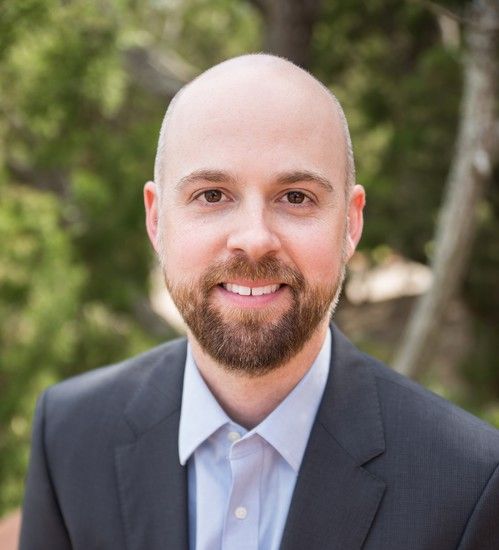About me
Thanks for your interest in my practice! Here is some information about me and the way I practice psychiatry that you might find helpful. Over the last several years, I have developed a unique philosophy of providing care to patients struggling with mental illness. I would like to share some of those thoughts with you.

My thoughts on psychiatry and wellness
- Whole person care- I believe in a holistic approach to healthcare. Health and wellbeing come to us by addressing many aspects of life—mind, body, spirituality, social connectedness, etc. While drugs certainly have a role in treating mental illnesses, there is more to health than being on the right drug. The overarching goal in treatment is to get your brain healthy and to maximize your ability to cope with stress.
- Ethics- I hold myself to a high standard of ethical behavior. Medical care today is far too influenced by large corporations (e.g. pharmaceutical and insurance companies) and large egos. I’m proud to say I have not taken any food, money, drug samples, etc. from drug companies in my career thus far, and do not plan to do so in the future.
- Industry skepticism- I am carefully skeptical of clinical research funded by pharmaceutical companies given their history of selective publication of positive studies and other questionable scientific practices.
- Individualized approach- None of my patients have been in a textbook. Diagnoses should be used as a general guide for treatment, but that treatment should be customized for each individual person by taking into account the ways in which they do not perfectly fit the “textbook diagnosis”.
- Autonomy- People should be empowered to participate in determining their medical treatment. I commit to being transparent about why I am making a recommendation and am glad to discuss alternatives.
- Complementary and Alternative approaches- I maintain openness to alternative medical practices. I frequently recommend yoga, meditation, acupuncture, diet modification and some herbal treatments to my patients. Psychedelic therapies hold a great deal of promise as well. I have often recommended ketamine as a treatment for depression, anxiety, PTSD, etc.
- Customer service- From my own experience as a patient, I have realized that patients want good customer service almost as much as sound medical advice. I aspire to be prompt, available, diligent and fair.
- No such thing as "normal"- I am a firm believer that “being normal” is different for each individual and embrace the wide range of human behaviors and neurodiversity.
- Psychotherapy is important- I know that medications offer relief from emotional distress, but psychotherapy is also a powerful tool. Changes made in the brain by medications, for the most part, are temporary and will go away when the medicine is stopped or changed. The changes made to the brain in psychotherapy and mindfulness practice can be permanent. I recommend psychotherapy to almost every patient because it has a role in treating almost every mental health issue.
- In my own practice of psychotherapy, I generally integrate several forms of therapy. The most common forms of therapy I practice are acceptance and commitment therapy, self-compassion focused and mindfulness-based therapies (also known as "third-wave" behavioral treatment).
My Training and Background
- I completed my D.O. degree at the University of North Texas: Texas College of Osteopathic Medicine in Fort Worth, TX. For those of you unfamiliar with what a D.O. is, it stands for Doctor of Osteopathic Medicine. It is one of two degrees, the other being M.D., that conveys full medical practice rights in the U.S. There are some differences in how I was trained that I think are important for you to know about.
- I was taught that the body has an inherent ability to self-heal, self-regulate and maintain health. There are many things that can disrupt ones ability to do this well, and that is a focus of treatment.
- The primary focus of medical care should be on the person being cared for, as opposed to the illness.
- Preventive care and the maintenance of health are at least as important as treating disease.
- I completed my residency in general psychiatry at the UT Southwestern at Seton Family of Hospitals program in Austin, TX and I am a diplomate of the American Board of Psychiatry and Neurology. I am also a diplomate of the American Board of Preventive Medicine in Addiction Medicine.
- I have been an FAA-designated Senior HIMS aviation medical examiner (AME) since 2019 and spend about half my time helping pilots and air traffic control specialists with various medical certification needs. Since roughly 2018 I have been active in performing aerospace psychiatric evaluations which are often required when someone is seeking FAA medical certification with a history of mental health issues.
- In 2023, I became an FAA-designated HIMS Psychiatrist and specialize in performing HIMS psychiatric evaluations for addiction, ADHD and other mental health issues when required by the FAA.
Why Moontower?

My practice was founded in Austin, TX and located there for 12 years. I always found the Moontowers or “moonlight towers” to be a captivating feature of the Austin skyline, and I had one located right next to my office in east Austin for many years. I also like the symbolism of something that provides light in darkness and safety in vulnerability. Often those struggling with mental illness feel they are immersed in a universal darkness and are looking for some light.